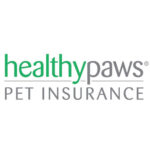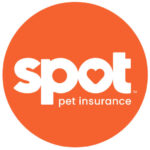Best Pet Insurance For Goldendoodles In 2025
In my experience, Healthy Paws offers the most suitable pet insurance for Goldendoodles.
We’ve saved shoppers an average of $350 per year on their pet insurance.
It’s shocking that 80% of pet owners can’t handle an unexpected $500 vet expense, and that’s where pet insurance steps in as a financial safety net.
In this assessment, we’ll explore the best pet insurance companies for Goldendoodles, helping you find the right plan for your situation. Like personal health insurance, pet insurance improves care and limits out-of-pocket costs.
Best Pet Insurance Companies For Goldendoodles, 2025
Several pet insurance companies that cater to Goldendoodles prioritize your pet's health and offer financial assistance, although they vary in their offerings. What works for one pet may not be suitable for another. Here are some of the top pet insurance options for Goldendoodles:



Compare The Best Pet Insurance Companies For Goldendoodles
Our analysis of the best pet insurance options for Goldendoodles covered earlier shows that numerous reputable companies are competing for the top positions. Each company also has its own unique strengths. Here's a quick overview to provide you with a glimpse into each insurer.
| Overall Rating | Best For | Waiting Period | Reimbursement % | Benefit Limit | Get A Quote | |
|---|---|---|---|---|---|---|
| Healthy Paws |
|
Overall |
15 days accident/illness |
70%, 80%, 90% |
Unlimited annual and lifetime |
Instant Quote |
| Lemonade |
|
Cheap |
2 days accident, 14 days illness |
70%, 80%,90% |
$5,000 to $100,000 annually |
Instant Quote |
| Many Pets |
|
Puppies |
15 days accident/illness |
70% or 80% (Most States) |
Unlimited annual and lifetime |
Instant Quote |
| Pumpkin |
|
Older Dogs |
14 days accident/illness |
90% |
$10,000, $20,000 or unlimited |
Instant Quote |
| Spot |
|
Multiple Pets |
14 days accident/illness |
70%, 80%, 90% |
$2,500 to unlimited |
Instant Quote |
Our Methodology
Evaluations and ratings were established by reviewing insurer websites, analyzing customer reviews, consulting other review platforms, and drawing on personal experiences with pet insurance.
Quotes Analyzed
Years Of Industry Experience
Brands Reviewed
Research Hours
Detailed Reviews Of The Best Goldendoodle Insurance Companies
Best Overall
Key Statistics
Why We Like Them
⇅Healthy Paws shines as the best option for pet insurance, with no limits on payouts, per-incident restrictions, or policy caps. Though it may cost more, it eliminates the need for hard choices tied to policy constraints. Their straightforward policy, free of expensive add-ons, lets you visit any licensed vet. Claims can be easily filed through their app or website, with most being settled within two days.
Benefits & Drawbacks
⇅- Reimbursements without bounds every year and throughout your life.
- Efficiently processing most claims within 48 hours.
- Receive a refund within 30 days
- Feasibility of direct payments to veterinary professionals. ✓
- Lack of routine medical coverage option ✘
Runner-Up For Best Overall
Key Statistics
Why We Like Them
⇅Lemonade is the most affordable pet insurance option for Goldendoodles, offering coverage limits that are similar to other companies, though not as comprehensive as Healthy Paws’ unlimited option. Lemonade provides coverage ranging from $5,000 to $100,000 annually, with premiums increasing based on the chosen coverage limit. The policy covers accidents and illnesses, including cancer, heart disease, skin conditions, fractures, and hip dysplasia in older Goldendoodles. Like other insurers, Lemonade does not cover preexisting conditions, dental care, behavioral issues, or elective procedures.
Benefits & Drawbacks
⇅- Make the most of a provided wellness opportunity.
- After an accident, wait only two days for coverage to begin.
- Combine your Lemonade home, renters, or car insurance with pet insurance to save 10%. ✓
- The pet telehealth line is unavailable outside specific hours.
- You'll incur an extra cost for vet visits.
- I regret to inform you that the policy does not cover prescription food and microchipping. ✘
Best for Puppies
Key Statistics
Why We Like Them
⇅For the best coverage for puppies, ManyPets is a standout. Rates aren’t impacted by pre-existing conditions, and cured issues might be covered after 18 months. Unrelated conditions can still qualify. Goldendoodle puppies, like all active dogs, are susceptible to illnesses like poisoning, ingesting foreign objects, and accidents. Insuring them early minimizes the chance of exclusions for pre-existing conditions as they grow.
Benefits & Drawbacks
⇅- Available throughout more than 40 states.
- Presents a choice of health benefits.
- Includes vet exam fees for both illness and accident-related appointments. ✓
- Pet telehealth support is unavailable 24/7.
- Pet behavior therapy is not within the scope of coverage.
- Unfortunately, alternative therapies aren't within our covered services. ✘
Best For Older Dogs
Key Statistics
Why We Like Them
⇅Aging Goldendoodles are prone to genetic health issues such as cruciate ligament problems and hip dysplasia, which can require costly treatment. Pumpkin doesn’t make you wait to cover these conditions and also covers vet exam fees for senior Goldendoodles. They offer coverage for surgeries, dental care, and other common health problems. Pumpkin provides three deductible options and typically reimburses 90% of eligible expenses.
Benefits & Drawbacks
⇅- Decide to enroll in a wellness program that's available.
- Save on pet insurance with discounts for multiple pets.
- Claim a sizable 90% reimbursement for dogs and cats over 8 weeks old. ✓
- Regrettably, we do not provide a 24/7 pet telehealth service.
- We regret to inform you that an accident-only plan isn't available. ✘
Best For Multiple Pets
Key Statistics
Why We Like Them
⇅Goldendoodles owners frequently have multiple pets because of the breed’s friendly demeanor. Spot offers a 10% discount when you insure more than one pet, helping you save significantly. Spot’s preventive care plan covers wellness services like annual check-ups, fecal tests, and teeth cleaning, with some vaccinations included. You also get a 30-day money-back guarantee if the service isn’t up to par. Spot reimburses up to 90% of covered vet bills and provides access to a 24/7 helpline. You’re free to use any licensed vet or specialist in the U.S.
Benefits & Drawbacks
⇅- Covers microchip application services.
- Provides a deductible starting at $100.
- Includes a 24/7 hotline for pet telehealth consultations. ✓
- There's a 14-day wait for accidents, unlike the 2-day wait typical with certain leading competitors. ✘
Average Cost Of Pet Insurance For Goldendoodles
| Company | Deductible | Annual Reimbursement % | Monthly Price | Age of Dog |
| Healthy Paws | $500 | 70% | $70 | 5 year old |
| Lemonade | $500 | 70% | $40 | 5 year old |
| Spot | $500 | 70% | $73 | 5 year old |
| Healthy Paws | $500 | 80% | $37 | 1 year old |
| Lemonade | $500 | 80% | $21 | 1 year old |
| Spot | $500 | 80% | $54 | 1 year old |
| Healthy Paws | $500 | 70% | $38 | 3 month old |
| Lemonade | $500 | 70% | $29 | 3 month old |
| Spot | $500 | 70% | $83 | 3 month old |
Average Cost Of Typical Vet Procedures
| Typical Vet Procedure | Average Cost Of Procedure |
| Puppy vaccinations | $75-100 |
| Flea & tick prevention | $40-200 |
| Heartworm prevention | $24-120 |
| Spay or neuter surgery | $200-800 |
| Annual exam | $240-600 |
| Teeth cleaning | $200-500 |
| Microchip | $40 |
Is Pet Insurance Worth It For Goldendoodles?
Pet insurance acts as a protective measure against unforeseen veterinary expenses. Many pet owners manage their pets’ medical bills, but a significant number of Americans struggle with a $1,500 emergency vet charge. With the right pet insurance, you can prioritize your pet’s health needs without the stress of financial limitations.
The value of pet insurance often depends on your expectations. If your pet is currently under treatment for a chronic ailment and you’re looking for financial assistance, you might be disappointed since no company in our evaluation covers pre-existing conditions. On the other hand, understanding your policy, its coverage details, and ensuring it fits your budget can make it a valuable investment.
Average Cost Of Emergency Vet Procedures
| Emergency Pet Procedure | Average Cost Of Procedure |
| General consultation/exam | $100-$150 |
| General bloodwork | $80-200 |
| X-rays | $150-$250 |
| Ultrasound | $300-$600 |
| 1-2 day hospitalization | $600-$1,700 |
| 3-5 day hospitalization | $1,500-$3,500 |
| Wound treatment & repair | $800-$1,500 |
| Emergency surgery | $800-$2,500 |
| Oxygen therapy | $500 |
How To Find The Best Pet Insurance Company For You
Because the costs and features of pet insurance policies can differ greatly between providers, selecting the right one can be challenging. To help you choose the best plan for your pet, consider these guidelines before reaching a decision:
Check Whether Your Pet Is Eligible
For insurance coverage, puppies and kittens are typically required to be at least 6 to 10 weeks old, based on the company’s guidelines. Some insurers may not permit first-time enrollment for senior pets or may offer only accident coverage. However, most plans guarantee lifelong coverage once your pet is enrolled, provided you continue paying premiums.
Research What’s Covered
Pet insurance generally handles costs for surgeries, hospital stays, and medications if your pet gets sick or injured. However, some companies might impose additional charges or not cover certain expenses. Here are a few examples:
- Exam fees: If your dog breaks a leg, for instance, some plans may cover X-rays, surgery, and pain medication, but they might not pay for the vet’s examination fee.
- Alternative treatments and rehab: Some plans provide coverage for alternative therapies like acupuncture and physical rehabilitation, while others may ask for additional fees.
- Behavioral therapies: Coverage for behavioral problems, such as aggression, might not be included in all plans.
- Prescription food: Certain plans could exclude prescription food or supplements, even if a veterinarian prescribes them for a covered issue.
- Dental care: Dental coverage can vary widely among pet insurance plans. Some may not cover conditions like gum disease or dental issues, and coverage could depend on recent dental cleanings. Some wellness options may cover these cleanings. Remember that pet insurance typically excludes pre-existing conditions, cosmetic procedures, and breeding-related costs.
Decide How Much Coverage You Want
Most pet insurance plans establish a limit on how much they will pay out each year, although some options are available with no caps. It’s your responsibility to choose a coverage amount that gives you peace of mind when covering veterinary expenses. If your dog or cat is healthy, you may go years without incurring more than regular checkup fees. However, unexpected surgeries or significant health issues can result in bills that reach thousands of dollars.
Understand Reimbursements And Deductibles
Most pet insurance policies will pay back a portion of your veterinary expenses. When enrolling in a plan, you typically have the option to select a reimbursement rate of 70%, 80%, or 90%. On the other hand, some plans provide a fixed reimbursement amount for specific treatments, which might not cover the full cost charged by your vet, requiring you to pay the remaining balance.
Almost all plans come with a deductible, which is the amount you pay out of pocket before the insurance begins covering costs. You usually have a choice of different deductibles, like $100 or $250. Some plans require a separate deductible for each issue, while most only require it to be paid once each year.
Generally, if you choose a lower deductible and higher reimbursement, your premiums will be higher, but opting for a higher deductible and lower reimbursement will lower your premiums.
Check Waiting Periods
After purchasing insurance, there’s usually a brief waiting period, often about 14 days, before full coverage for accidents and illnesses begins. During this period, treatments are not covered. Longer waiting periods may be in place for certain conditions such as cruciate ligament injuries, which can impact a dog’s knee stability and movement.
Examine Extra Costs
Some pet insurance companies include coverage for routine services such as check-ups and vaccinations. While this may seem attractive, it’s essential to assess whether the extra expense is worthwhile. Compare the annual cost of the wellness insurance plan to what you usually pay out-of-pocket for these services annually. Be sure to carefully review the specifics, as definitions of “wellness” can vary among different pet insurance providers.
Compare Quotes
The price of pet insurance varies based on the provider and the coverage level selected. Some pet insurance providers offer discounts for covering multiple pets, potentially reducing costs. However, discounts aren’t a guarantee of the optimal plan. To discover the best pet insurance for your needs, research and obtain quotes from different plans. Ensure your comparison is unbiased, considering coverage levels, deductibles, and reimbursement limits.
Factors That Impact Cost Of Your Pet Insurance Policy
The price of pet insurance can change, much like your health insurance costs, based on several key factors, such as:
- Location: Insurance companies assess local veterinary expenses when determining your policy’s price.
- Pet’s Age: Older pets typically face more health challenges, which can lead to higher premiums.
- Pet’s Breed: Some breeds are more likely to suffer from health problems. For instance, bulldogs and Boston terriers often face respiratory difficulties, while Pugs are more susceptible to hip dysplasia. These health risks can influence the cost of your insurance.
- Deductibles, Coinsurance, and Coverage Limits: The less you want to pay out of pocket for your pet’s care, the higher your premiums will be. Choosing a $100 deductible instead of a $500 one means you’ll have faster reimbursements but will also incur higher premiums.
Common Health Issues For Goldendoodles
Goldendoodles, like many purebred dogs, often experience breed-specific health challenges, many of which are genetic in nature. In some cases, breeders have neglected to account for these genetic factors, leading to issues that affect the breed more broadly. Goldendoodles are more prone to genetic health problems than many other breeds. Here are some of the most common issues they face:
- Cancer (Oral Melanoma, Mast Cell Tumors)
- Brachycephalic Obstructive Airway Syndrome (BOAS)
- Patellar Luxation
- Hip Dysplasia, Legg-Calvé-Perthes Disease
- Corneal Ulcers, Entropion, Dry Eye
- Skin Fold Dermatitis, Infections
FAQs
Is pet insurance cheaper for purebred dogs?
Insurance premiums for purebred dogs are higher due to genetic vulnerabilities that lead to expensive health issues, unlike mixed-breed dogs.
What is the average cost of owning a Goldendoodle?
The first-year expenses amount to approximately $3,000, which covers vaccinations, food, grooming, and insurance. Following that, yearly costs decrease to about $1,900.
What insurance do you need for a dog?
It’s beneficial for dog owners to have pet insurance to handle veterinary expenses and ensure their dogs stay healthy.
Sources
⇅